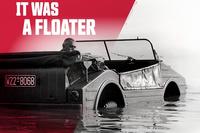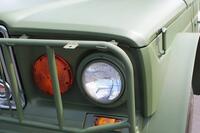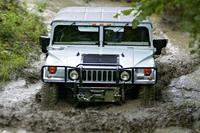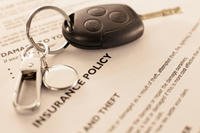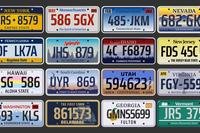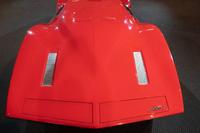If you have a car, you have auto insurance. (Or you should!) If you have auto insurance, you should know that your policy is made up of a couple of different types of coverage: bodily injury liability, personal property liability, comprehensive, collision, and extras such as rental reimbursement and towing and labor coverage.
Your policy, based upon your location, may have other variables as well, or use different terms. In this post, I'm talking about collision coverage, which covers damage to your vehicle caused by impact with another object other than animal.
I italicized your and other than an animal because I think they are important parts of the conversation. Collision coverage is only for your vehicle. Damage to other vehicles, or other objects, is under the personal property liability portion of the policy. Also, coverage for accidents involving animals comes under the comprehensive portion of your policy. This is important for people, like me, who live in areas where animal collisions are frequent.
You absolutely need to have great bodily injury liability and personal property liability coverage - it is an essential part of any solid financial plan. None of us can afford the potential costs of an enormous accident, possibly with multiple injuries.
Comprehensive coverage is pretty cheap and, therefore, isn't as big a target for cutting. Collision coverage, however, is usually a large portion of your auto insurance bill, and you might not even need it. It is required by lenders if you have a loan on your car, but once the loan is paid, you can make the decision about collision coverage based upon your individual situation.
While making these choices, you've got to remember: Insurance is designed for catastrophic situations, you don't want to make a claim for any amount that you can reasonably pay for yourself.
Start with the facts
How do you find out how much your collision coverage is costing? You can use your policy, paper or online, to see, or you call your insurance agent or company directly. Be sure to understand how charges and discounts work on your statement so you are using the right figures. While you are there, check what deductibles you have on your policy. Do some reseach. Compare auto insurance quotes for the best coverage at the best price.
Once you know how much you are paying for collision coverage, and your deductibles, you need to know how much your vehicles are worth. Insurance companies use fair market value to determine vehicle value. You can use websites such as kbb.com or Edmunds.com to research the current fair market value for your cars.
Figuring your options
Once you have the information you need, you'll have to consider the two basic things that could happen: you could be in a car accident in which the repair cost is more than the value of the car, commonly called totalled, or you could be in an accident in which the repair cost is less than the value of the car. They are nearly the same thing in the calculations, but it helps some people get their mind around the math if they think of them as two different situations.
Start with the most expensive car you own. Take the total value of the car, then consider that you'll already have to pay the deductible, so subtract the deductible from the car's value. This gives you the maximum amount that your policy will cover, if the car is totalled. Looking at your financial situation as a whole, and the total amount you'd possibly receive from the insurance policy, and see if that amount is something that you could absorb into your budget without making a claim.
If it is, you should consider dropping that insurance and keeping the premium money aside in case something does occur. This is called "self-insuring" and it makes sense for many people. It make even more sense when you consider that many claims aren't for total losses, but for smaller damage. For example, if you have a $2000 repair bill, and a $1000 deductible, would you be able to absorb that other $1000 loss, considering your savings and budget?
Always remember the principle that you don't want to be making small claims against your policy, because they will make your rates go up and could possibly even result in the cancellation of your coverage. That's no way to save money!
At what point would you make a claim? My car is worth about $4200, and I have a $1000 deductible. I have $3200 in my new car savings account. Essentially, I'll never make a claim against that coverage. So, why do I carry it? No decent reason whatsoever.
If you have multiple cars, you need to look at the question a couple of different ways. Depending on the value of your cars, you might want to drop collision on all of the vehicles, or maybe just some. What are the chances of both cars getting into an accident at the same time?
Dropping collision coverage on multiple cars will mean multiple savings, but also multiple exposure to risk. What if your savings account can support the cost of wrecking one car but not both? Mull over all these options before you make this decision.
Another thing to consider, and this is much harder, is the likelihood that you are going to be in an accident. We obviously don't know what any day will bring, but you can use some things that you do know.
Are you accident-prone? Do you tend to speed? Do you drive dangerous places that have lots of collisions? Do you do a lot of driving during times of high traffic, or early in the morning in an area with fog issues? This is the part of the process that always makes me think that we do need collision coverage, even thought I've been proven wrong over and over again.
Perhaps you discover that you do need collision coverage. What if you jacked up your deductible? Mine is currently at $1000 per vehicle, which is the highest my insurer will allow me to cover. If you can afford to self-insure for a larger portion of the policy, then see how high you can make your deductible.
I wish my insurance company would allow me to get a really high deductible, like $5,000 or $10,000. We don't currently own a vehicle worth that much, but someday we might and I hate to think of paying premiums for coverage that I'll never use.
Don't make this decision alone
If you are part of a couple, please, please chat with your partner or spouse before you start making drastic changes to your insurance coverage. The time for your partner to discover that you've dropped the collision coverage is not after there has been
You're not a fortune teller
Here's the last thing, and possibly the most important part of the whole discussion: You can't predict the future. It is entirely possible that you are going to make the right decision, for you, right now, and discover in a year or five that it was actually the wrong decision. You could drop your collision coverage today and be in an accident tomorrow. You could keep your collision coverage, as I have, for the last couple of decades and never make a claim.
There is no perfect answer. Do the math, make the choice that seems best for you, right now, and then live comfortably with your choice. If it turns out that a different choice would have been better, don't beat yourself up about it. We're all human, and we're doing the best that we can. Need more help? Check out our auto insurance quote comparison tool.


